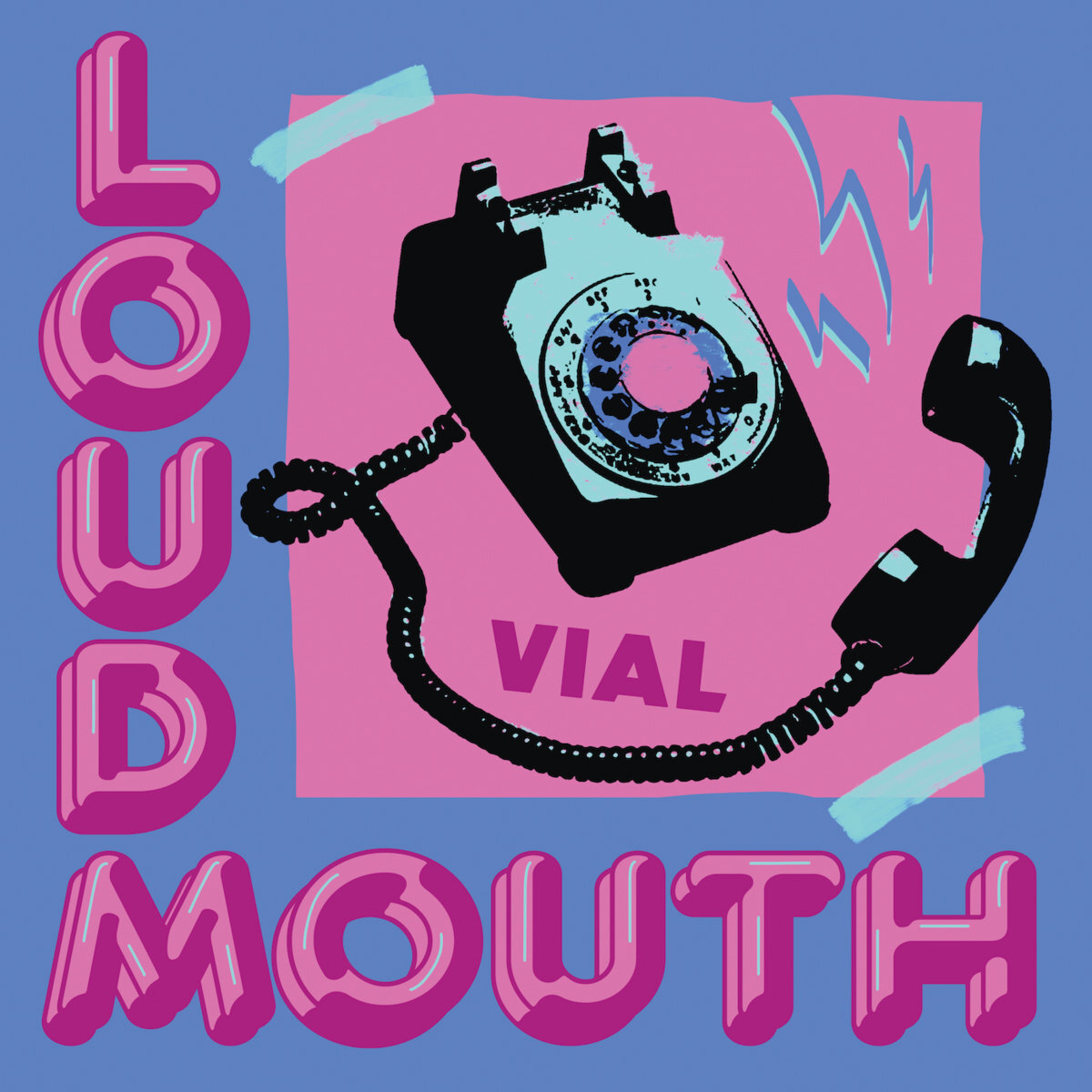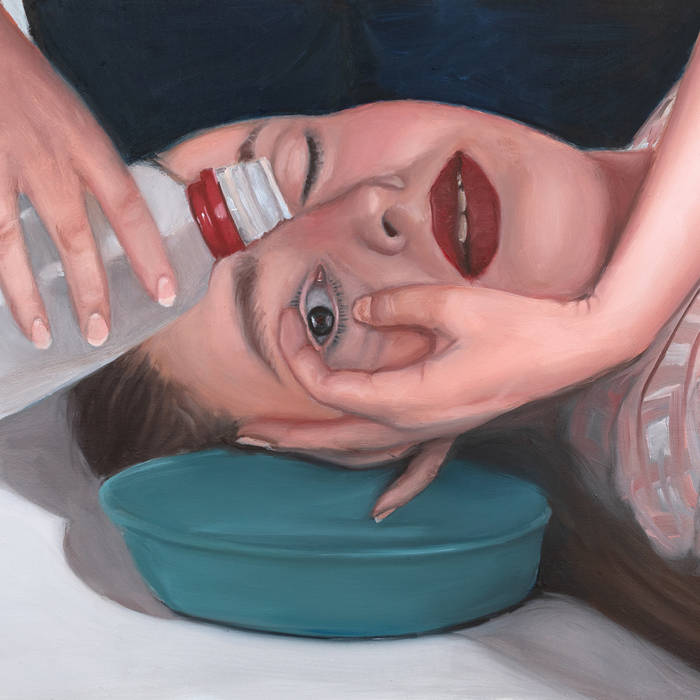Liance – This Painting Doesn’t Dry | Album Review
/How do you define a life? How will I be remembered? Was I a good person? Many people wait until they’re old or facing their own mortality to grapple with these sorts of existential questions. These are the types of cosmic worries that drive people to pop out kids, write autobiographies, or donate massive amounts of money to have their name emblazoned on the wing of some building—all in the name of ensuring a legacy. Life is hard enough to navigate on its own, but trying to think of life in your absence is even harder to conceive.
But, in a way, life is just the sum of its parts. It’s not all courageous decisions or life-changing adventures; there are millions of little microscopic moments that are impossible to articulate. Moments of laughter shared between friends. Days of sadness and consolation. Hours of nervousness and worry. Outbursts of pain and violence. Those moments may be less glamorous, but they are what make up a majority of our lives. They may not all be beautiful or noteworthy, but they are honest, and they are plentiful. This Painting Doesn’t Dry, the sophomore album from Liance, is a 44-minute document of these types of moments, both big and small, that make up a life.
The entity known as Liance can be described in many different ways. The band’s Spotify page self-describes Liance as the “narrative songwriting project of Hong-Kong-Michigan-Brighton transplant James Li.” Meanwhile, I saw a fan online describe Li’s approach to music as “diaristic indie folk-rock electronic chamber pop.” While grounded in physical spaces and the arbitrary boundaries of musical genres, these examples alone prove just how eclectic a Liance release can be. For as long as this project has existed, Li has refused to conform to any single category or sound. Li only knows how to make music that’s true to his experience, and that leads to a collection of sounds, ideas, and thoughts that feel as multi-faceted as any one individual is. Perhaps more than any other record I’ve heard this year, This Painting Doesn’t Dry feels like a collection of stories that flesh out an existence, personality, and viewpoint all at once.
Opening track “Ellie Takes a Bath” perfectly sets the tone for the album, welcoming the listener into the release with a mesmerizing noise loop that buoys throughout the track. Soon joined by a stuttering drumline and eventually Li himself, the song fleshes out a picture of two people sticking together through sickness and finding connection in shared interests and experiences. The song references, amongst other things, The Glow, Pt. 2 and Ezra Pound, just so the listener knows what they’re getting into upfront.
The following track, “Too Beautiful To Destroy,” acts as a mood-based level-set for the record, letting the listener in on a key inciting incident that frames the remainder of the LP. The song begins with a lush piano introduction which is quickly subsumed by a Flume-esque electronic warble that commands immediate attention. In between stark personal verses, the song’s chorus repeats, “It all adds up / Even small things add up in time / It all adds up” until the phrase saturates every fold of your brain. This all leads to a piano-tracked bridge where Li flashes forward in time, detailing the suicide of a close friend. This traumatic loss is directly contrasted with beautifully poetic moments shared amongst friends.
These types of losses are the kind that hang with you forever. The pain of losing a friend is something that never entirely goes away; it only numbs over time. Sometimes all you can do to actively combat that sadness is to find comfort in a friend who knows what you’re going through. Though he doesn’t spell it out for the listener, the adjacency of these two opposing states creates an indispensable dichotomy. Placing such a striking tragedy next to moments of contentedness establishes how important each of these feelings are in their own right. Li’s choice to surround such a formative low with hopeful rays of human connection acts as a beautiful reminder of the good that can feel so imbalanced in the wake of loss. These moments are emotional anchors that keep us grounded.
Outside of the personal experiences depicted in the lyrics, there is also a downright stunning range of textures and musical flavors to be found here. Mid-album “Catalonia” is a beautiful instrumental pit-stop that sits somewhere between the tropical math rock of Standards and the high-fantasy jazz guitar of Shalfi. Meanwhile, the instrumental on “Used To The Signs” sounds like pure National worship, which sits amongst other tracks that lean heavier into eclectic Sufjan Stevens and Destroyer-inspired instrumentation.
Throughout Painting, songs shift focus from interpersonal to global, sometimes at a moment’s notice. Scenes of livestreamed funerals and tear-gas-laced protests punctuate flashes of beach trips and other “quiet victories” that make the heavy events feel a little less heavy. This is a consistent theme throughout the record, just as it is life. As things outside seem to spiral further and further out of our control, finding small, somber moments of connection is sometimes the only thing we have to hold onto. Whether political, environmental, or systemic, the world is comprised of these things can that feel too monumental to tackle on our own. Sometimes finding solace in the things we can control is all we have. Whether it’s a partner, friend, or parent, finding someone that you can lean on is necessary for survival in 2021. Sometimes that takes the form of empathizing and wallowing in sadness together, but other times it’s escaping into a moment of happiness where all of those lumbering specters feel far away.
These feelings come to a head on “Untitled 92 at the NPG,” where Li calmly sings, “Blushing through post extinction events / Elated by our own holy insignificance.” These existential sentiments lead directly into “The Decameron,” where Li interpolates an English expression as he explains that he “[doesn’t] want to live through history no more.” As these thoughts spiral, the perspective shifts from grounded to celestial in one of the album’s most poetic verses.
When I emerged I was covered by the earth
The parking deck was full of rotting flowers
There is a river - shimmer - threading illness back to the past
Seven planets and three stars
The record’s penultimate title track is a 90-second excursion that acts as a thesis statement for the entire piece. The song is so quiet, subtle, and fast that it almost passes by unnoticed. It’s not until further listens that the words really land…. But I’ll get to that in a minute. “This Painting Doesn’t Dry” is followed by “TAMSY,” which is undoubtedly Li’s magnum opus. This epic 12-minute closer is a multi-phase journey that winds from pedal steel ruminations to cosmic spoken-word poetry. The song evokes such indie-rock landmarks as Sufjan Stevens’ “Impossible Soul” and Car Seat Headrest’s “Beach Life-In-Death,” great company to be in.
On this final song, Li offers up a few more slice-of-life portraits, eventually working up to a series of affirmations over a soaring instrumental that feels about as close to redemption as Li will ever allow himself. The album wraps up with a lyrical callback accompanied by the same noise loop that opens the record, leading to a sense of recursion or repetition.
As one takes in this oceanic statement of personal truth and poetic observations, everything begins to come into focus. These events all have meaning, even when they have no meaning. As these stories bounce around the listener’s head, the album’s namesake suddenly clicks into place.
Aside from being a beautifully poetic sentiment, the phrase “This Painting Doesn’t Dry” is a realization that life isn’t over until it’s over. As Li flashes from one small vignette to another, the message becomes clear; these moments will keep happening. Your life is never finished. It’s not until you pass on that your “painting” is finalized. Until then, you will keep adding on layers, colors, and shapes, building out a beautiful landscape of memories, events, and people. Things may get covered up, but they’re always there. Losses and feelings may become distorted with time, but their impact remains. Your life is your canvas, but it’s impossible to know how it will turn out until it’s all over, and even then, you don’t get to appreciate it fully.
So once again, I ask, how do you define a life? Defining a life is hard, and defining your own is inherently impossible. It’s difficult enough for us to understand how we are perceived day-to-day, let alone how people will remember us once we’re gone. In fact, we have no say in how others will remember us–that’s hard, but it’s also a relief in some ways. In the meantime, all we can do is continue to forge ahead and live life the best way we know how. Existence can be built through these connections and experiences, but we have no say in our legacy. All we can do is hope that others catch enough glimpses of our true selves that once our painting is finalized, it feels authentic to who we were.









